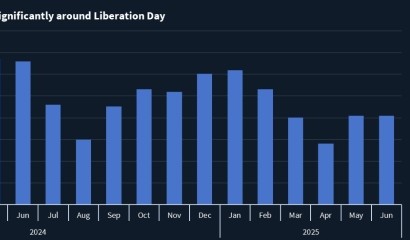Open Sesame -“ Alibaba’s reorg stunt to appease regulators but leaves investors in doubt
In the Arabic folk tale, Ali Baba was a poor wood cutter. Luckily, he overheard the magic words “Open Sesame” that led him to wealth. Not just that, he managed to survive his jealous brother and the forty thieves who unsuccessfully attempted to kill him.
Much like Ali Baba, Jack Ma, the founder of Alibaba Group Holding [NYSE:BABA; HKG:9988] in 1999, had a rather modest childhood. But through his admirable business savviness, Alibaba quickly rose to become an icon of Chinese private entrepreneurship.
His e-commerce behemoth business became the target of China's swift and broad regulatory crackdown on big techs after the iconic billionaire openly criticized the country’s regulators and banks in October 2020, derailing the initial public offering of Ant Group, an online payment giant under Alibaba. Alibaba's own valuation has since plunged.
Regulators rattled not just Alibaba but China's freewheeling private technology enterprises – once the pride of China's technology achievement – as the government sought to bring tech companies back under its control.
And investors and dealmakers pretty much gave up on Chinese techs in the past couple of years, Alibaba included.
New dawns
Now the tech giant is looking to shake things up after announcing in late March a restructuring that will split the group into six independent entities, each of which with its own board of directors and potentially going public separately.
BABA's shares traded in the US, which hit a year-to-date low of USD 9.96 prior to the restructuring's announcement, advanced 30% within two weeks. But the exuberance was short-lived and the stock has thrown up 21% since.
The business structure overhaul was clearly an “Open Sesame” equivalent stunt by Ma to appease Chinese authorities. The question is whether investors buy into it.
“If you look at Alibaba, fundamentally, you see which ones can go IPO…only two, not something to scream about or get in front of,” said one investor in Hong Kong. “They still need to do a little more work.”
He went on to argue that while the worst may be over for Alibaba – or China's techs as a whole – the lesson learnt is that one should never want to step on the regulator's turf.
There will also be a “regulatory discount” imposed on Chinese techs in the mind of investors when they deploy money. While Alibaba may seem to have staged a comeback with the restructuring, whether or not this will serve as a playbook for other technology groups, stricter regulations will be a “long-term negative” for the sector.
Oshadhi Kumarasiri, an analyst with LightStream Research, echoed the view in a 30 March report.
“We don’t think that this decision to divide Alibaba’s business into six entities is because the company thinks that the sum of the parts is greater than the current valuation,” said Kumarasiri. “We think it is just an attempt to seek more lenient regulations, potentially even moving some of its businesses to regulatory-friendly markets like Singapore.”
“Therefore, we could be looking to short Alibaba yet again once this initial excitement settles,” he said.
Still, for equity capital markets bankers, Alibaba’s restructuring means deal opportunities.
Ming Lu, an analyst with Aequitas Research, told this news service he believes "Taobao Tmall Commerce" will go public first, especially its physical store part, Freshippo. Bloomberg reported on 19 April that Freshippo, also known as Hema, was in talks with CICC and Morgan Stanley over an IPO in Hong Kong though the deal may not happen until 2024 or later.
Cainiao Network Technology, the logistics arm of Alibaba, is working with CICC and Citi on a potential Hong Kong IPO that could value the business at USD 20bn, Bloomberg reported on 30 March.
A 4 May report highlighted that the group's international online shopping unit, including brands such as Lazada and AliExpress, is also exploring a US IPO.
At the very least, these potential listings should help spell life into tech IPOs in Hong Kong and, maybe, even all the way into the US.
Below is a list of filings that have been made so far this year for technology IPOs in Hong Kong.










